CATHAY FORUM 2019 – WORLD IN TRANSFORMATION

May 4, 2020
Global
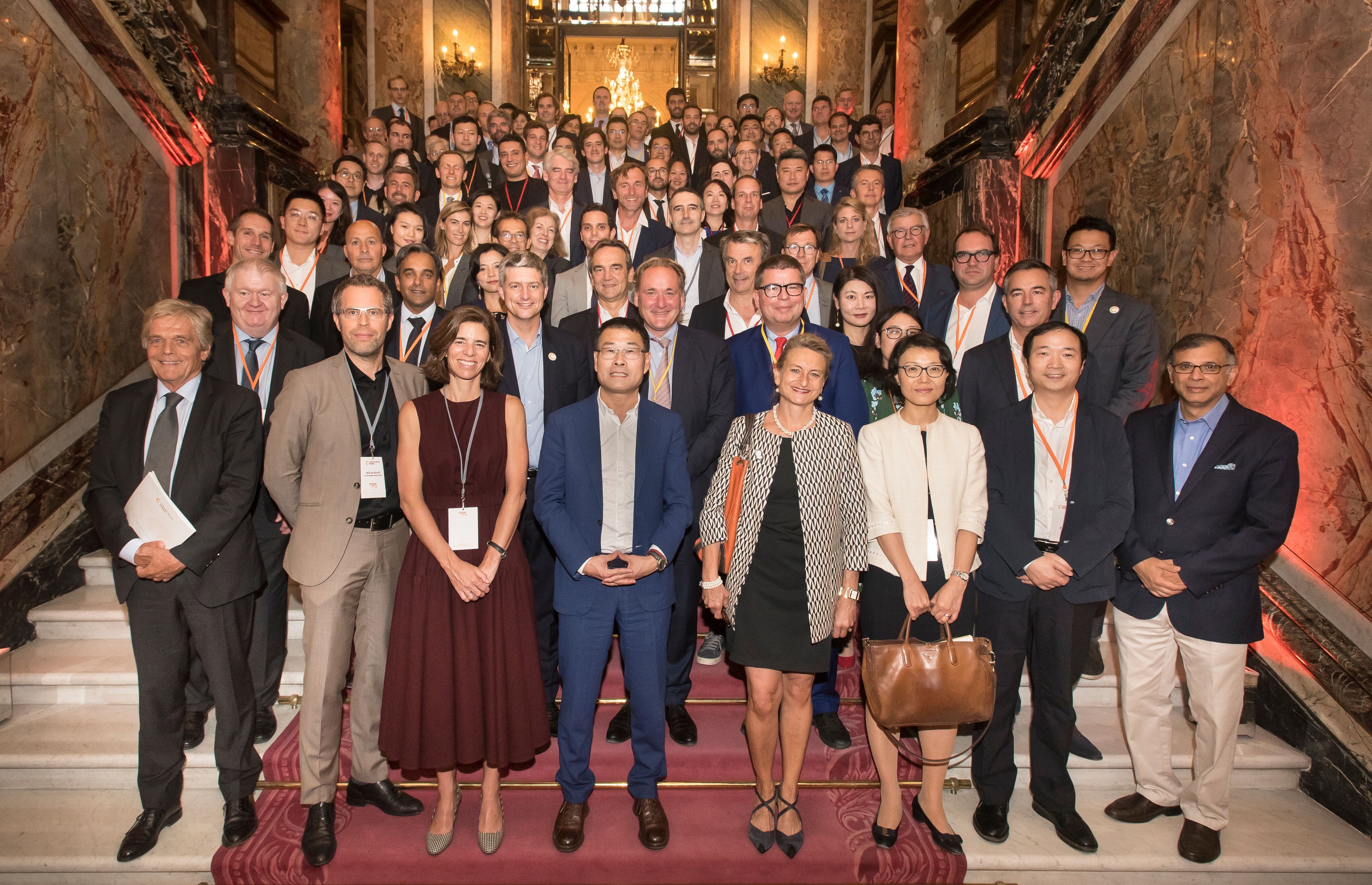

On September 24th, Cathay Capital
had the pleasure of welcoming more than 400 global
ecosystem friends, including 53 speakers from 47 different
entities of which 10 guests of honor, for a day-long program full of
knowledge sharing, intense debates and fruitful networking
in the center of Paris at Hôtel Potocki (CCIP).
This year’s forum was held under the umbrella theme “World in
Transformation”, with 7 sub-topics in Artificial Intelligence, Industry
Transformer; Africa as a new opportunity of growth; Smart City Revolution and Mobility of the Future;
Revolution in Healthcare; Fintech Revolution; ESG: Impact Investing; Diversity and inclusion in PE/VC
and Evolution of consumer behavior in the digital age.
Keynotes
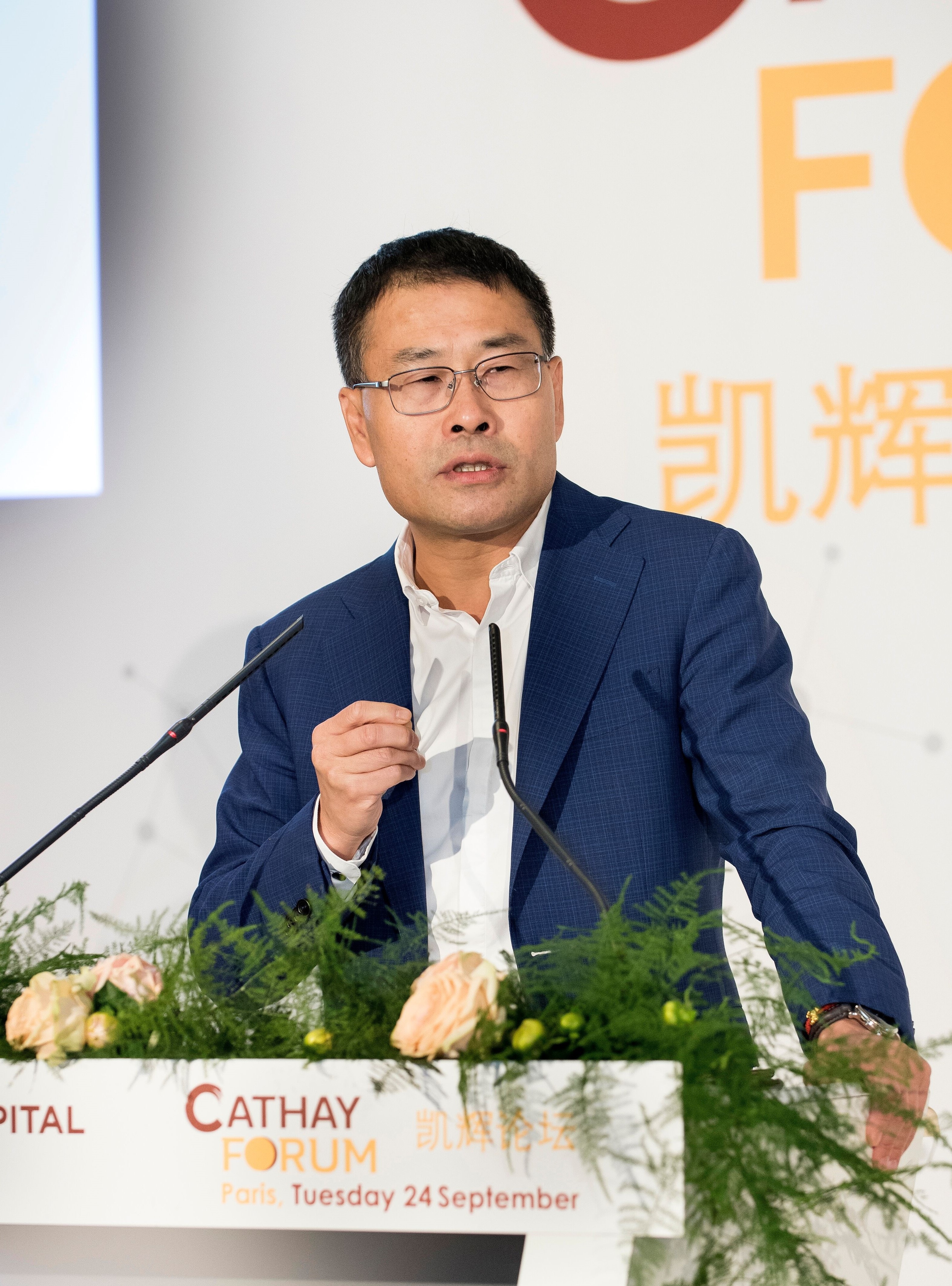
Ming-po Cai, Founder and President of Cathay Capital
Cathay Capital is founded on knowledge sharing. That’s how we get better and
form an efficient and growing partnership for the benefit of our investors and participations. What drives
Cathay’s expansion is to fulfil entrepreneurs’ needs around the world through our talented local teams and
our global ecosystem. We seek the best and open up possibilities for the future in a spirit of cooperation
and knowledge seeking. This is why we are gathered here and it’s the key to our success.
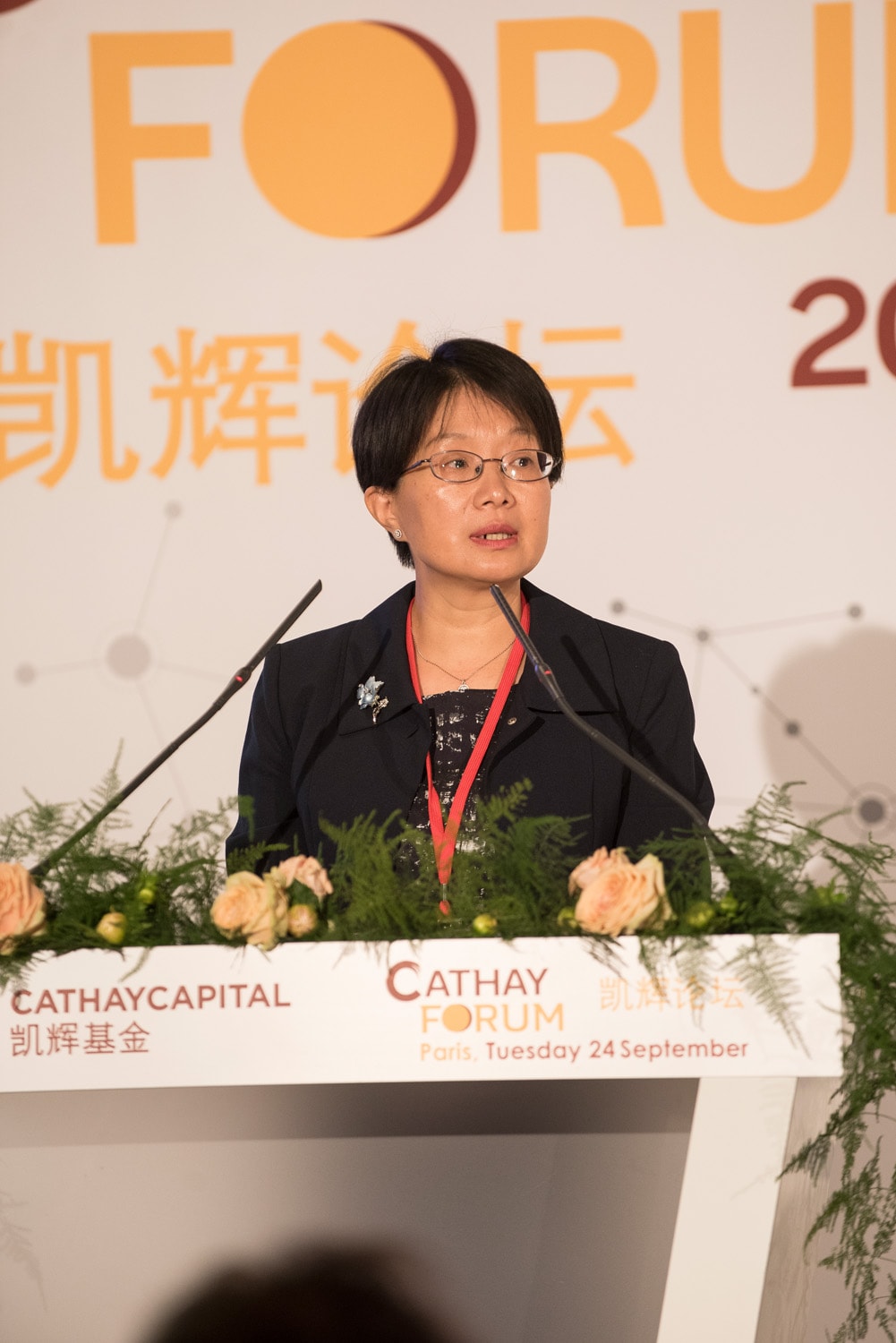
Jinsong Yu, Minister, Chinese embassy in France
As global powers, France and China take the responsibility of preserving the
rules-based multilateral global economic system. Cathay has played a significant role in the economic
partnership between France and China having invested in over 100 companies in both countries and facilitated
the implantation of Chinese companies on the French market. Our countries present plenty more new
opportunities and I hope investors will emulate Cathay’s example and participate in the deepening of our
economic ties.
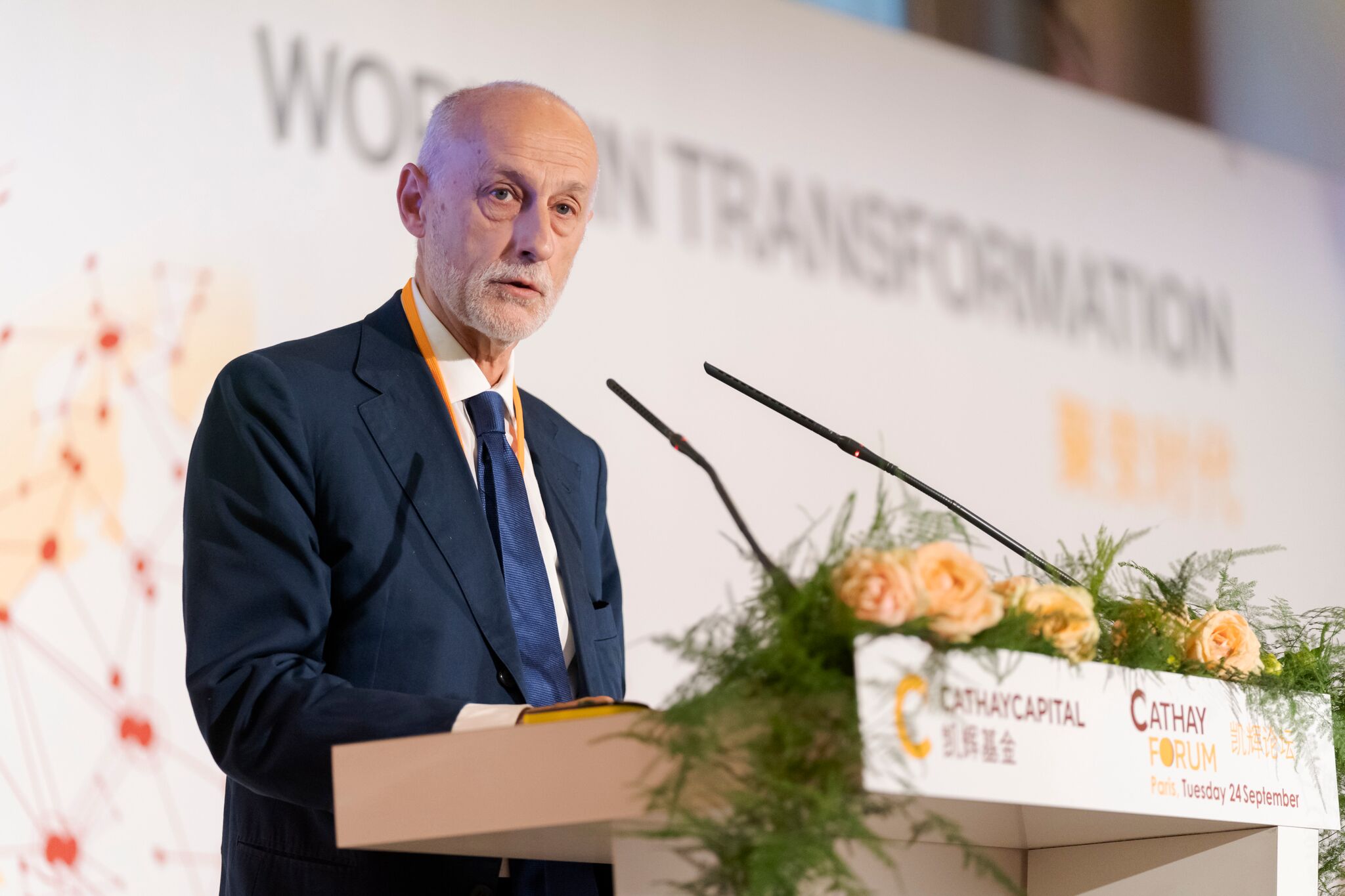
Pier Luigi Gilibert, Chief Executive of the European Investment Fund
The European Investment Fund has carried out one of the most
comprehensive studies on the investment climate in Europe and I’m happy to say that investors are
overall optimistic. Though important challenges lay ahead. Most importantly, Europe needs to regain
leadership in cutting-edge technologies and innovation. To this effect, the European Investment Fund
has raised 10 billion euros in new commitments this year and the EU commission has built an
investment fund worth 38 billion euros, but the participation of private investors like Cathay
Capital is absolutely necessary and welcomed.
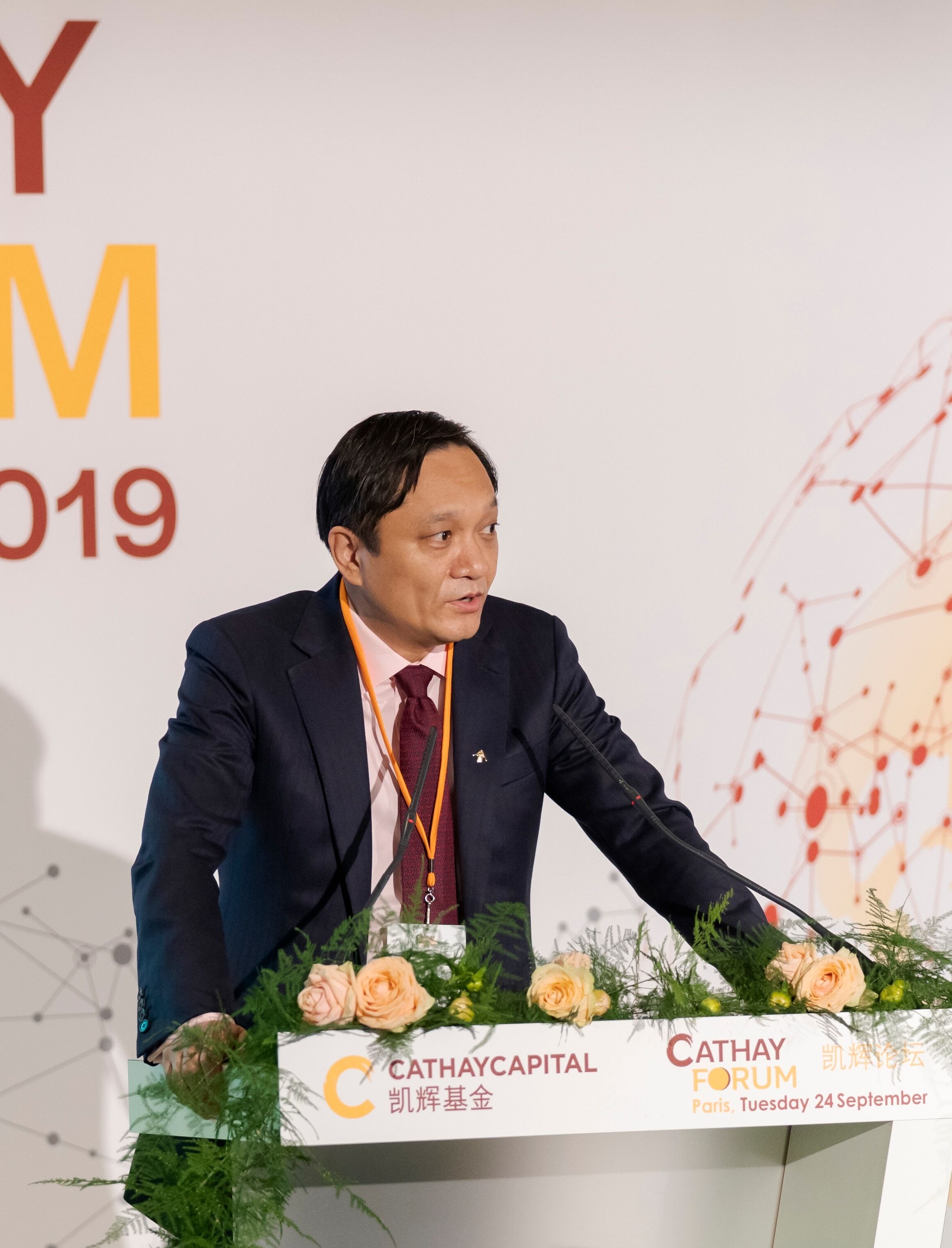
Dr. Yuan Ding, Vice-President and Dean of CEIBS
China is in transformation. It has balanced its trade, become the
largest consumer market in the world, and is in the process of normalizing its foreign investment
regulatory framework. These normalization trends are crucial to maintain and build trust with the
rest of the world. We know that trust-based relationships will become increasingly important as
Chinese industry moves up the value chain and maintain the global geopolitical balance in the midst
of US-China tensions. Let’s not forget that globalization is not inevitable and that we must
continue to work for it.
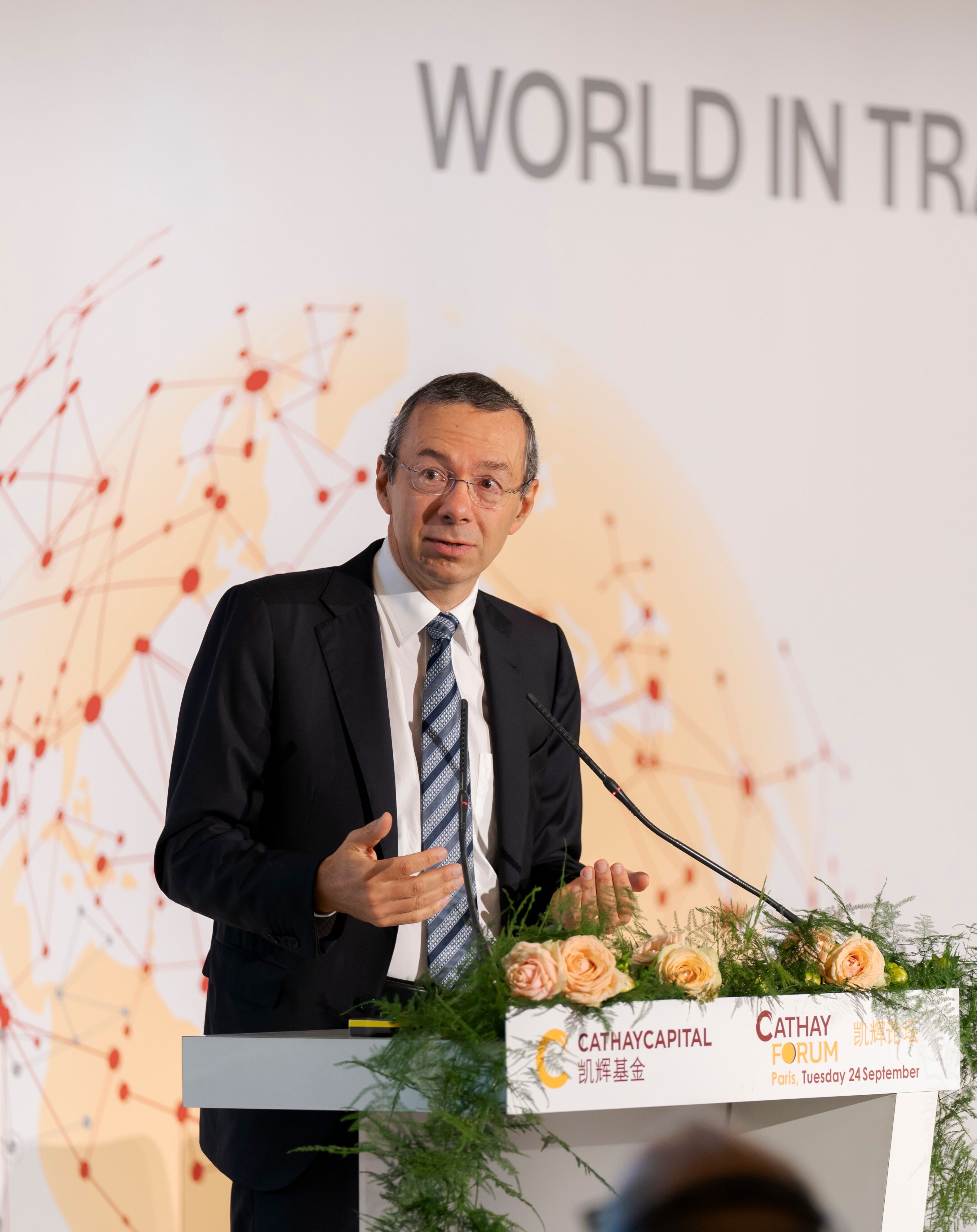
Eric Labaye, President of Ecole Polytechnique
Research is at the heart of transformation by giving birth to new
technologies that transform economies and societies. But the shift from research to societal
change, from a working theory to a successful start-up and a new economic activity requires
talented people and investment. At Polytechnique, we believe in a multi-disciplinary approach in
keeping with our 225 years old history; we believe in harmonizing methodologies and forming
partnerships with other research institutions and also with startups, locally and across the
world; and we believe in attracting the best talent. Cathay Capital and Polytechnique have a lot
in common.
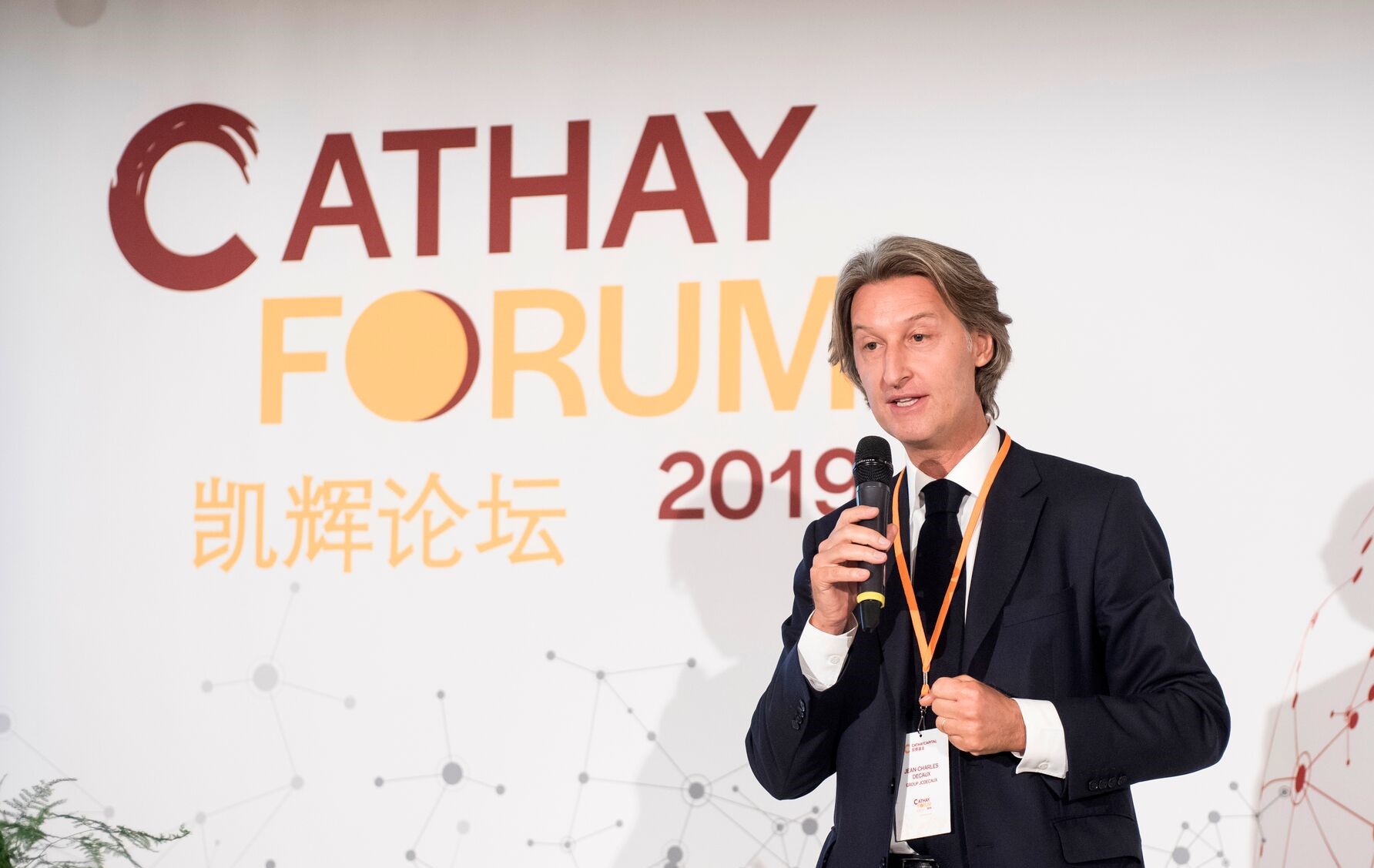
Jean-Charles Decaux, Co-CEO of JCDecaux
We must find a way to reconciliate technology and
sustainability. The future of urban services lies in multimodal and interconnected
facilities leveraged for better environmentally conscious management. That’s why we
pioneered open source data and the urban bike-renting service Vélib. The spirit of
entrepreneurship has never been so strong and there’s never been so much money to invest,
coupled with a shift from enthusiasm for technology to the finality of its application, we
should see some bright innovations in urban management in future.
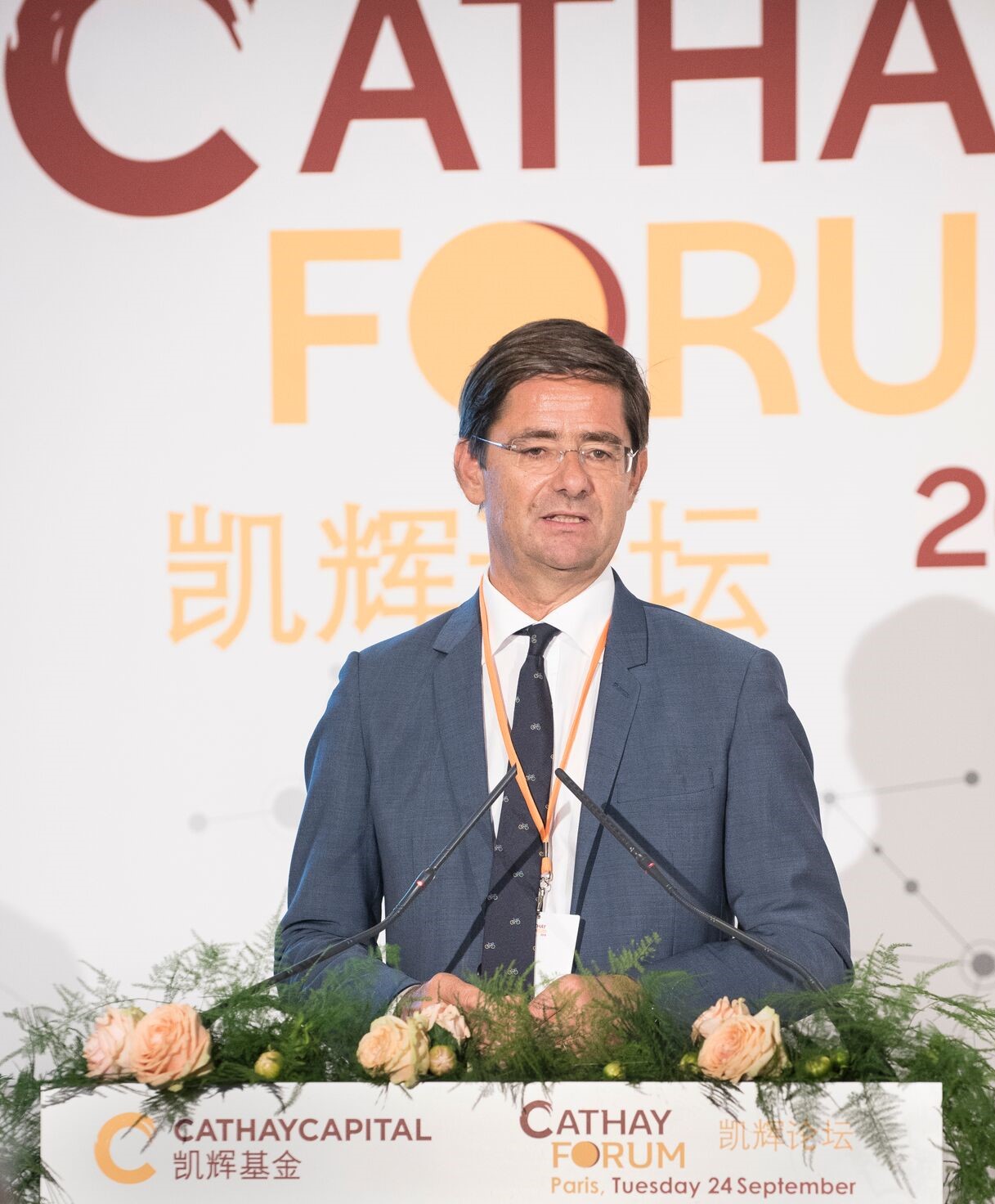
Nicolas Dufourcq, General Director of Bpifrance
Bpifrance was among the firsts and is the biggest investor in
Cathay Capital. Our overall performance is rising thanks to Cathay and we share a passion
for innovation. We cannot count on states to move innovation forward since they haven’t got
the funds, but private investors must make sure we are up to speed. French innovation is
well-supplied in talents thanks to France’s universities, but French startups need to
attract more US and Chinese LPs to be sustainable. Cathay Capital has done remarkable things
and we are not investors focusing only on financial return. Cathay Capital can definitely
serve as a source of inspiration in that domain.
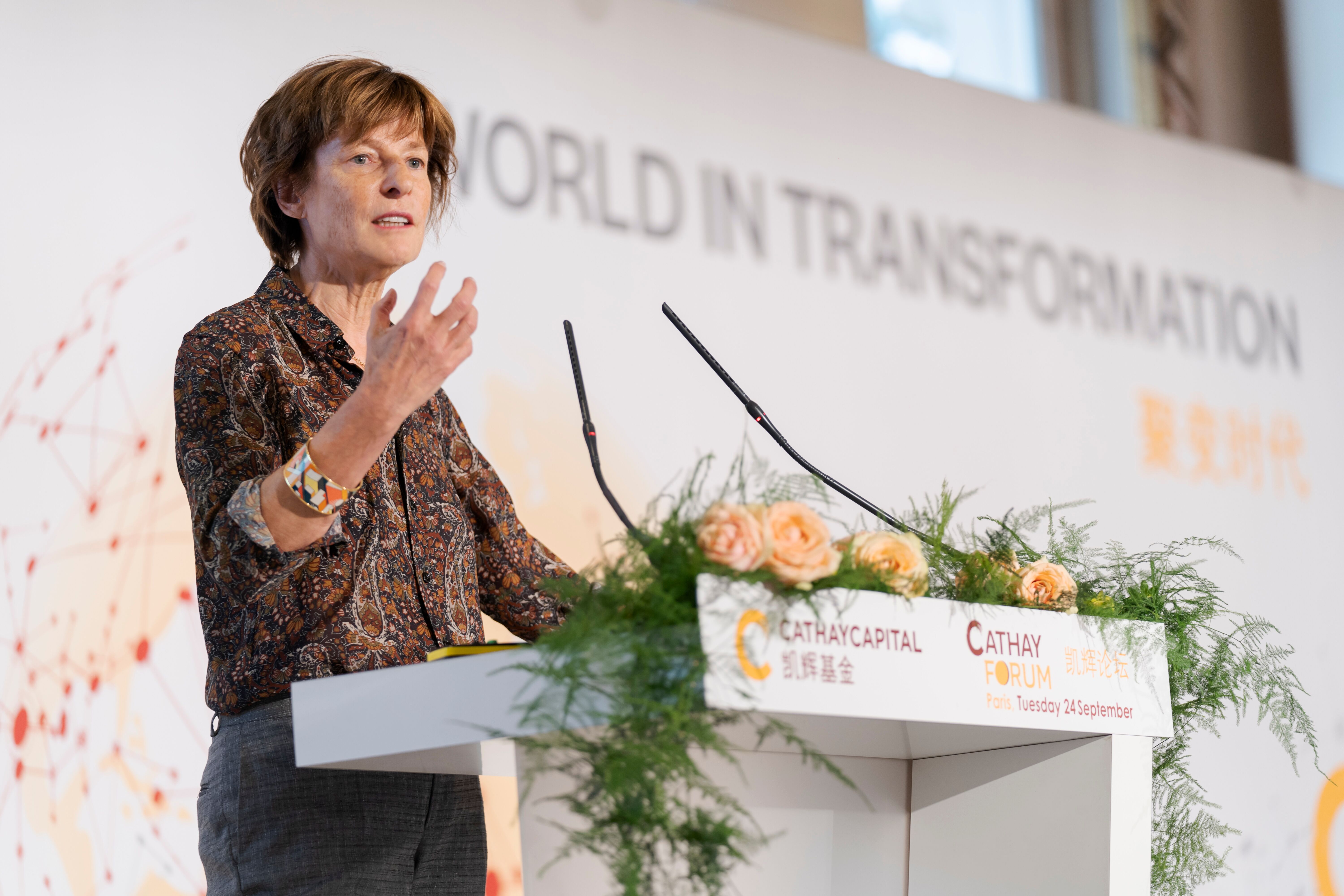
Patricia Barbizet, President of Témaris & Associés
You can have a career when you are a woman today. It was
not the case 30 years ago. It took a long time, but we are now on the right track,
even if there is still a lot to do. We have passed many generational markers, from
mixed schools to fathers who want their daughters to succeed. Even the very notion
of “diversity” has evolved. Major groups were pioneers in this revolutionary
process, which takes place when it becomes the concern of the top management.
“We change what we face” and this is why Cathay and
Cathay’s portfolio companies will be agents of change, because diversity has been a
part of Cathay’s culture since its inception as a cross-border company.
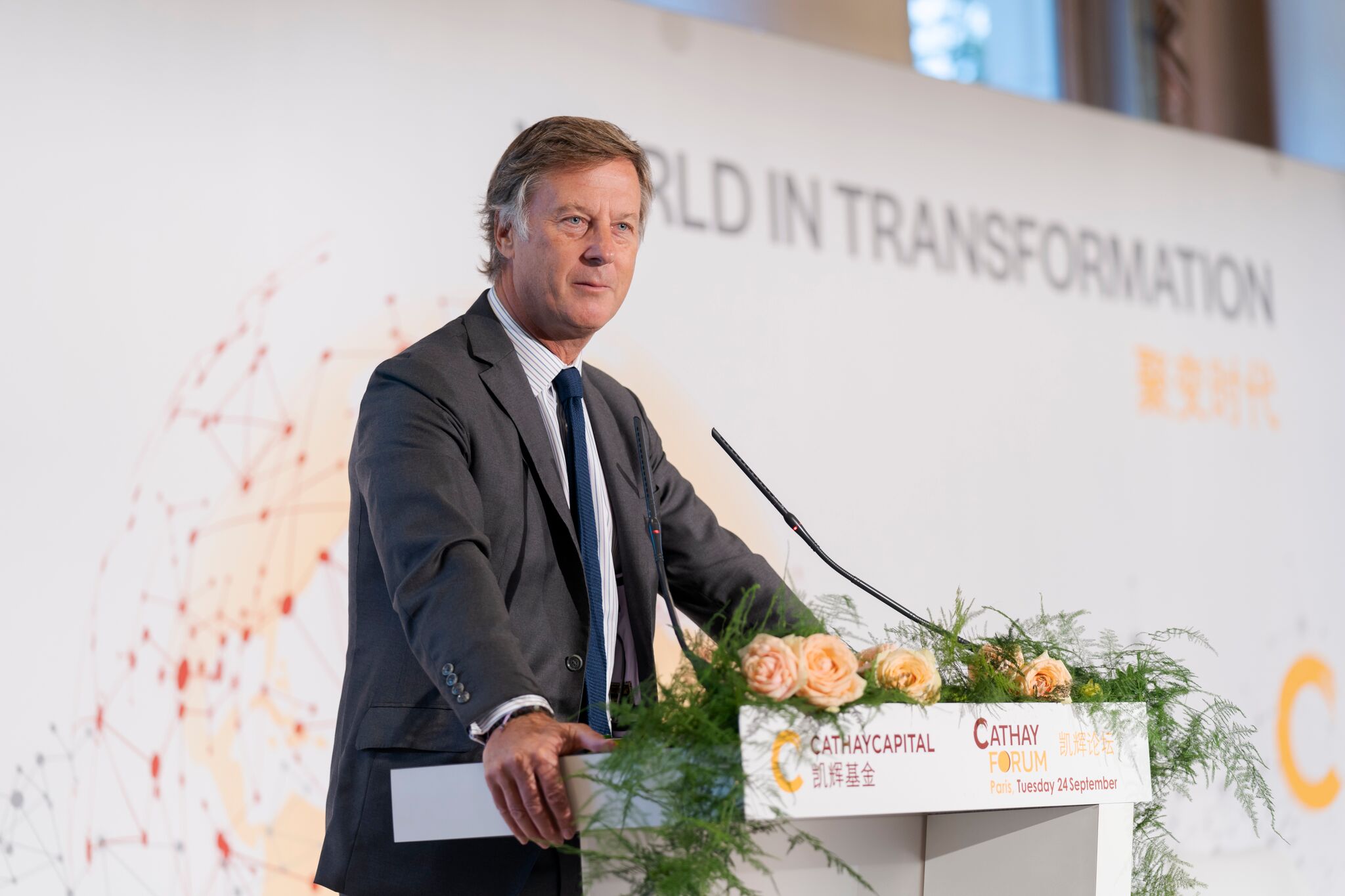
Sébastien Bazin, Chairman and CEO of Group Accor
The tourism industry is going through a major shift. A
disruption that is not new as it started 20 years ago. And it is not a surprise because
Travel & Tourism is the 2nd largest industry in the world by value and the first in
terms of jobs. It is a profitable and predictable industry, which grows between 3% to 5%
per year. Pure digital players like Booking, Expedia or TripAdvisor are growing faster
than us but they are now also challenged by Google and others. Accor is a historic and
important player in an industry which is 100 years old. Accor is a legacy company that
is changing its organization, giving a voice to young people, changing its approach to
be less product-minded and more client-centric. The key is to avoid fighting battles
that are already lost and keep evolving by taking measured risks.
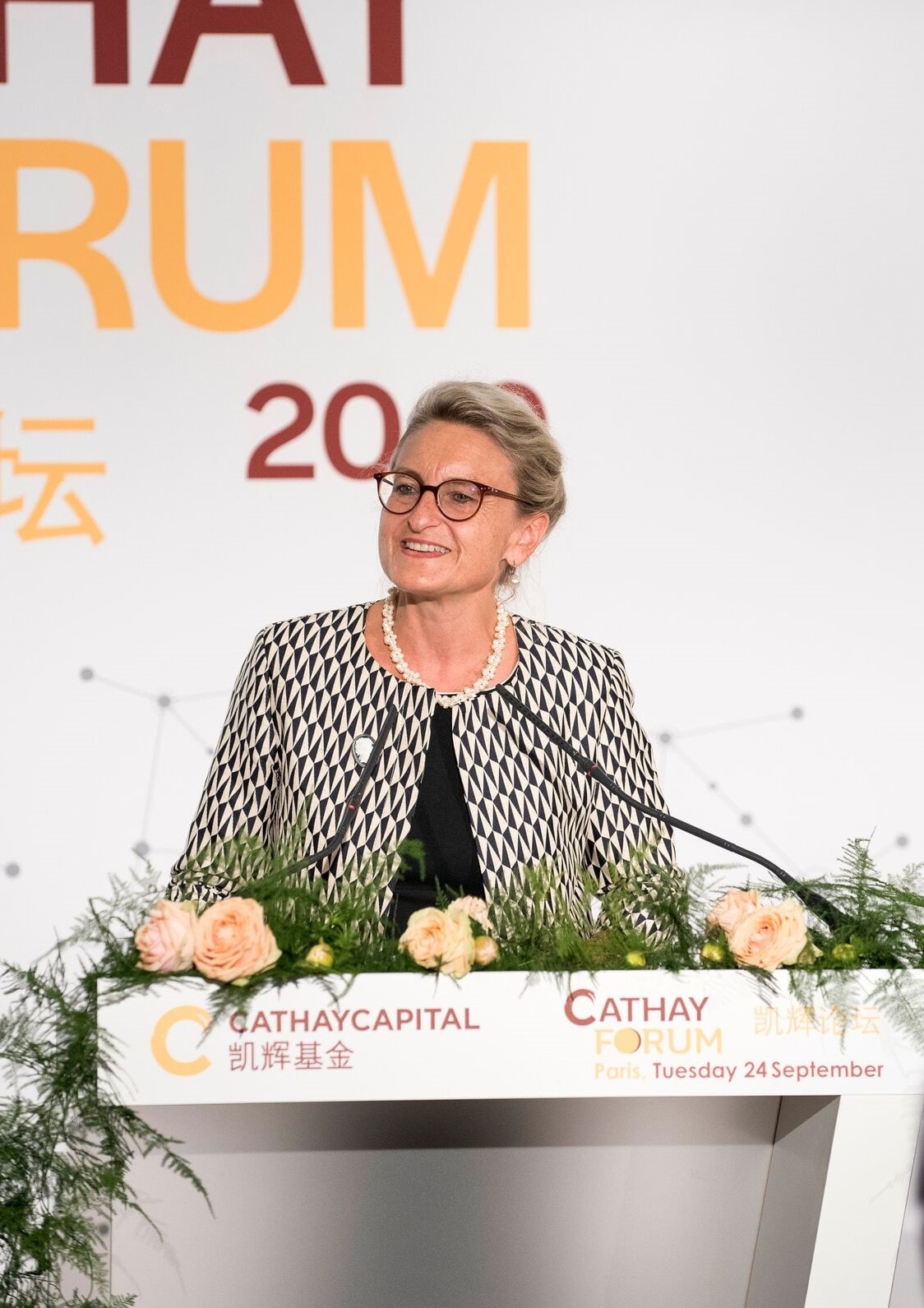
Gabrielle Gauthey, Director of Carbon Neutrality Businesses, Total
Oil and coal have been fuelling societal change for more
than two centuries but with climate change we are facing today a major challenge that
needs to be addressed at all levels. Total is an active member that looks for Smart
Energy. Our partnership with Cathay Innovation is an important part of this strategy as
corporate venture is key to finance and scale up new technologies.
Panels
Round Table 1: AI, Industry
Transformer
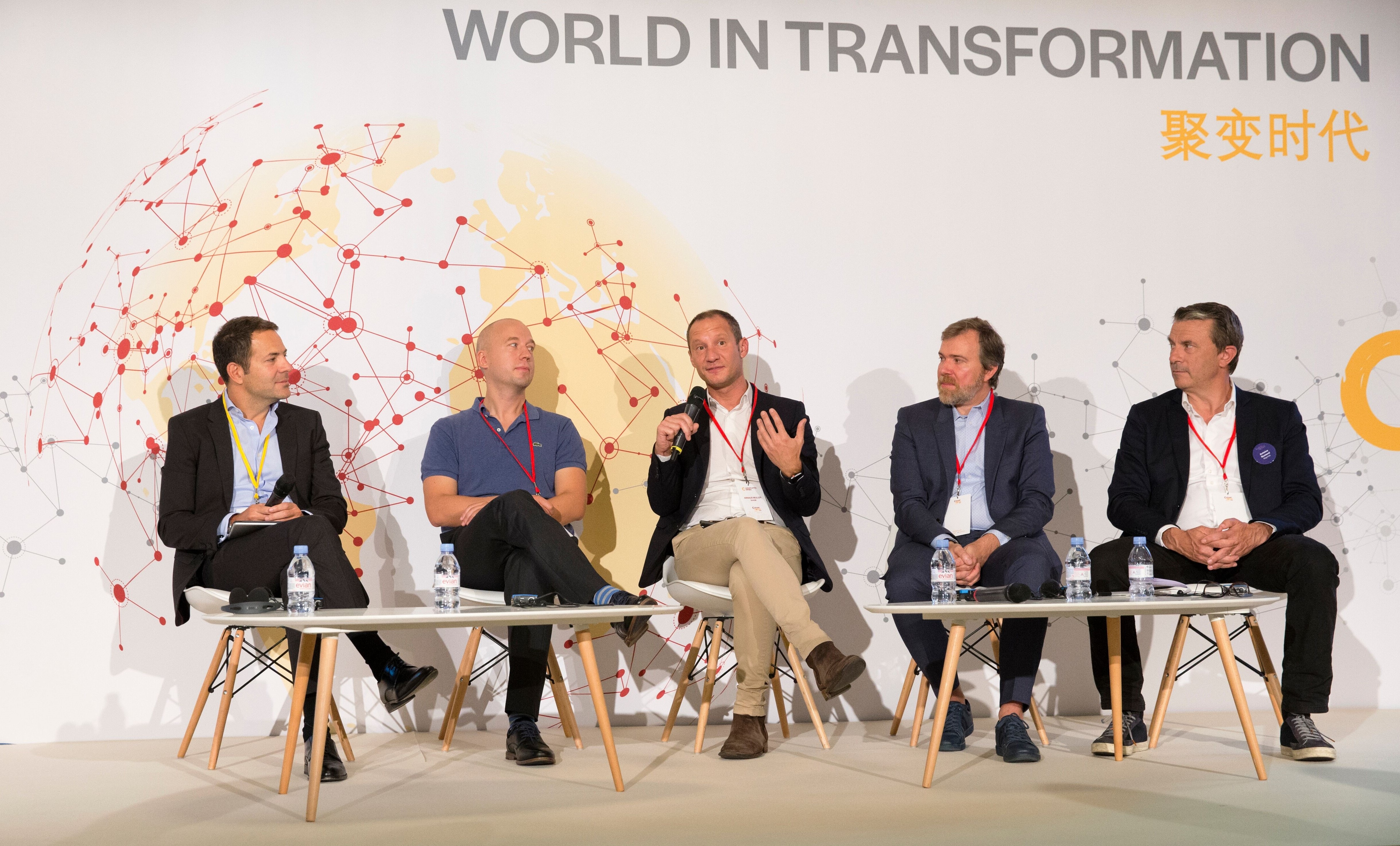
Moderator: Jacky ABITBOL, Partner of Cathay Innovation; Speakers:
Arnaud MULLER, CEO and Founder of Saagie; Antoine ROSTAND, Founder and CEO of Kayrros;
Mikhail ZASLAVSKIY, Chief Research Officer of Owkin; Charles-Albert LEHALLE, Head of Data
Analytics in Capital Fund Management
AI is essentially advanced analytics applied to big data; it hasn’t got
much to do with human intelligence as its usually understood. It’s a generic technology, that must
be adapted very differently depending on the industry. It is a technology that will impact all
business functions by gathering massive quantities of raw data and transforming it into improved
economic applications, thus enabling big firms to be as agile as startups, and as innovative.
Automation of repetitive tasks that demands a lot of computing power but
not much intelligence or creativity will certainly take place. It’s a trend sometimes called the
cheap intelligence economy. Yet AI won’t replace humans in the field of decision-making, it will
assist them in making better decisions. The issue with ethics in AI is who is doing what with your
data and the transparency of the process. That’s where we need to be strict on privacy by design,
auditability, traceability. Another major issue with AI is finding and hiring expert technicians.
Collecting the data is not enough, we need people to develop the necessary tools to analyze and use
it. These are huge job opportunities!
Round Table 2: Africa as a new
opportunity for growth
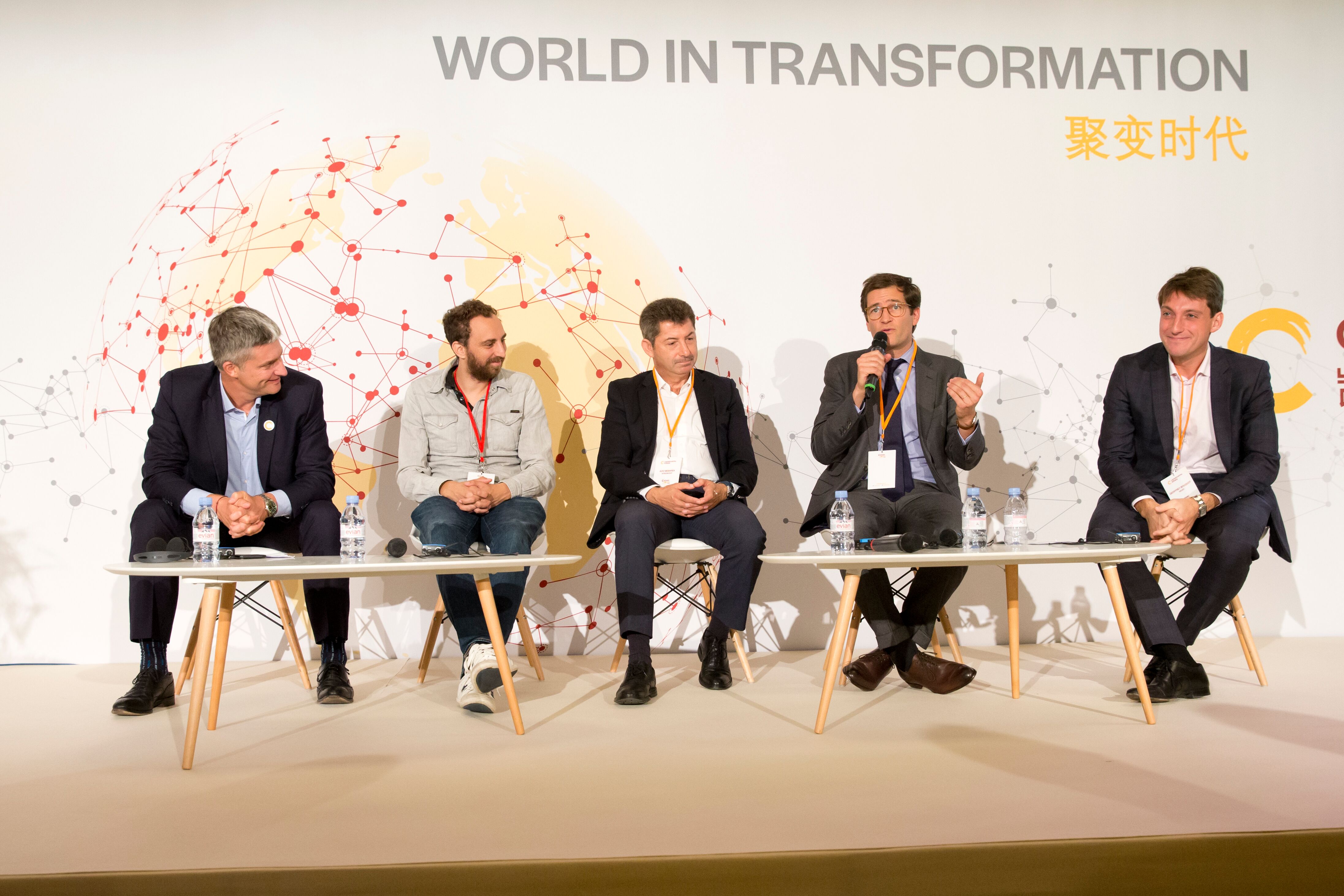
Moderator: Denis BARRIER, CEO and
Co-founder of Cathay Innovation; Speakers: Aziz MEBAREK, Founder and President of
AfricInvest; Geoffrey BOUQUOT, Group Vice President, Corporate Strategy & External
Relations of Valeo; Teddy PELLERIN, Co-founder and CEO of Heetch; Bertrand WALCKENAER,
Deputy General Director of Agence Française de Développement
Media news on Africa usually miss the positive macroeconomic trends
which have been at work for decades. Education has made great strides in Africa; GDP per capita has
grown 42% over 30 years, and a free trade zone is under construction. Serious constraints do exist.
The electrification rate is below 40%, financial inclusion is less than 50% which in turn makes it
hard to get access to education, medical care, and other crucial services. Business solutions, such
as car-hailing apps like Heetch, can find immense space and quickly take leadership in some
countries in Africa. This is the continent where startups can have most impact. One of the greatest
challenges in Africa is how to orient funding, private funding, toward climate change prevention and
societal projects.
Fireside Talk: Mobility of the
future
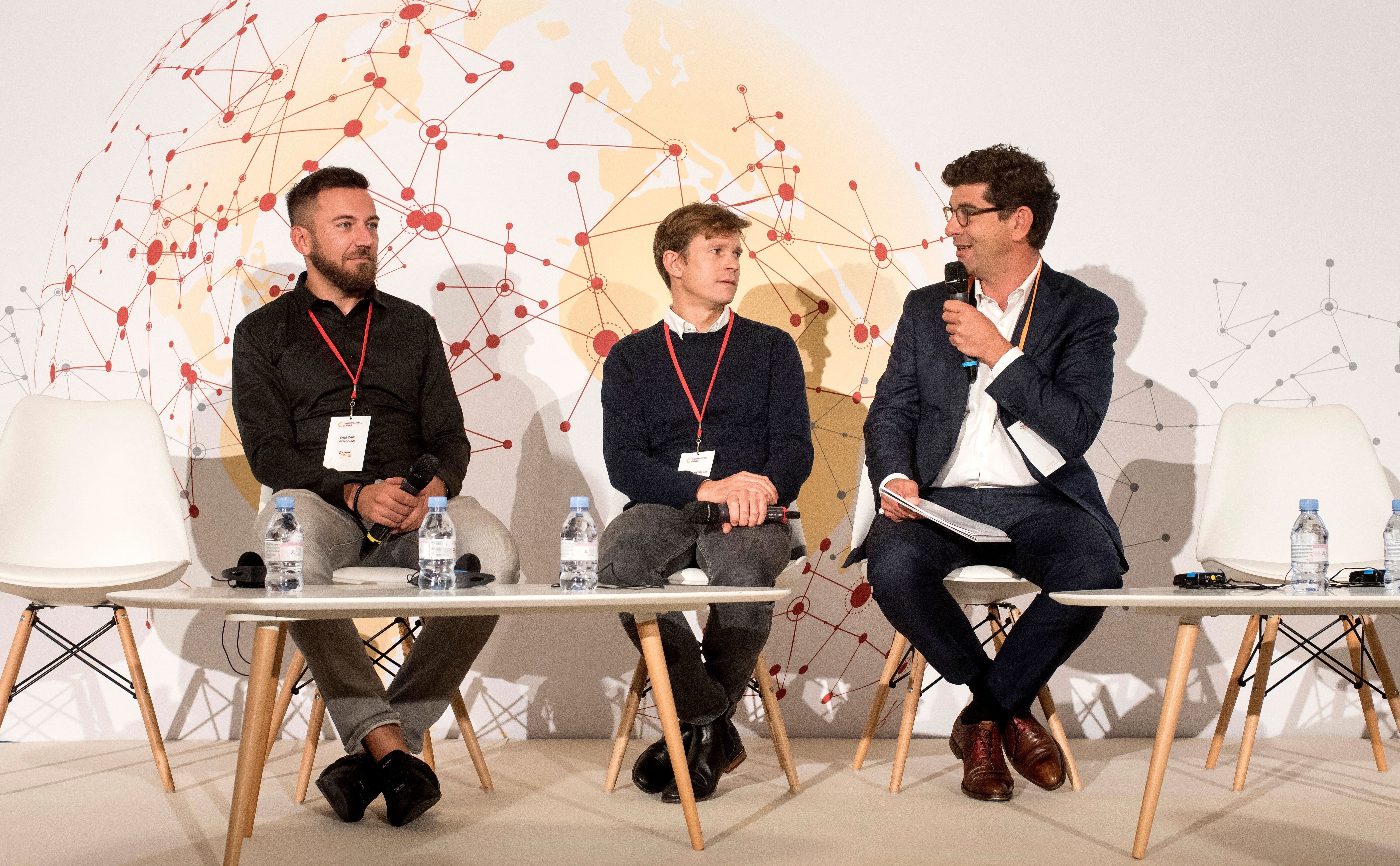
Moderator: Matthieu VAN DER ELST, CEO
of Michelin Ventures; Speakers: Paulin DEMENTHON, Founder of Drivy, CEO of Getaround Europe;
Sam ZAID, CEO of Getaround
Uncontrolled mobility is not the best way to characterize the current or
future situation. Connected systems and car sharing systems allow people to use cars at higher
utilization rates, which leads to faster cycles of innovation. Given sustainability and climate are
fixed priorities, this should translate into more climate conscious and sustainable mobility models.
Round table 3: Smart city
revolution
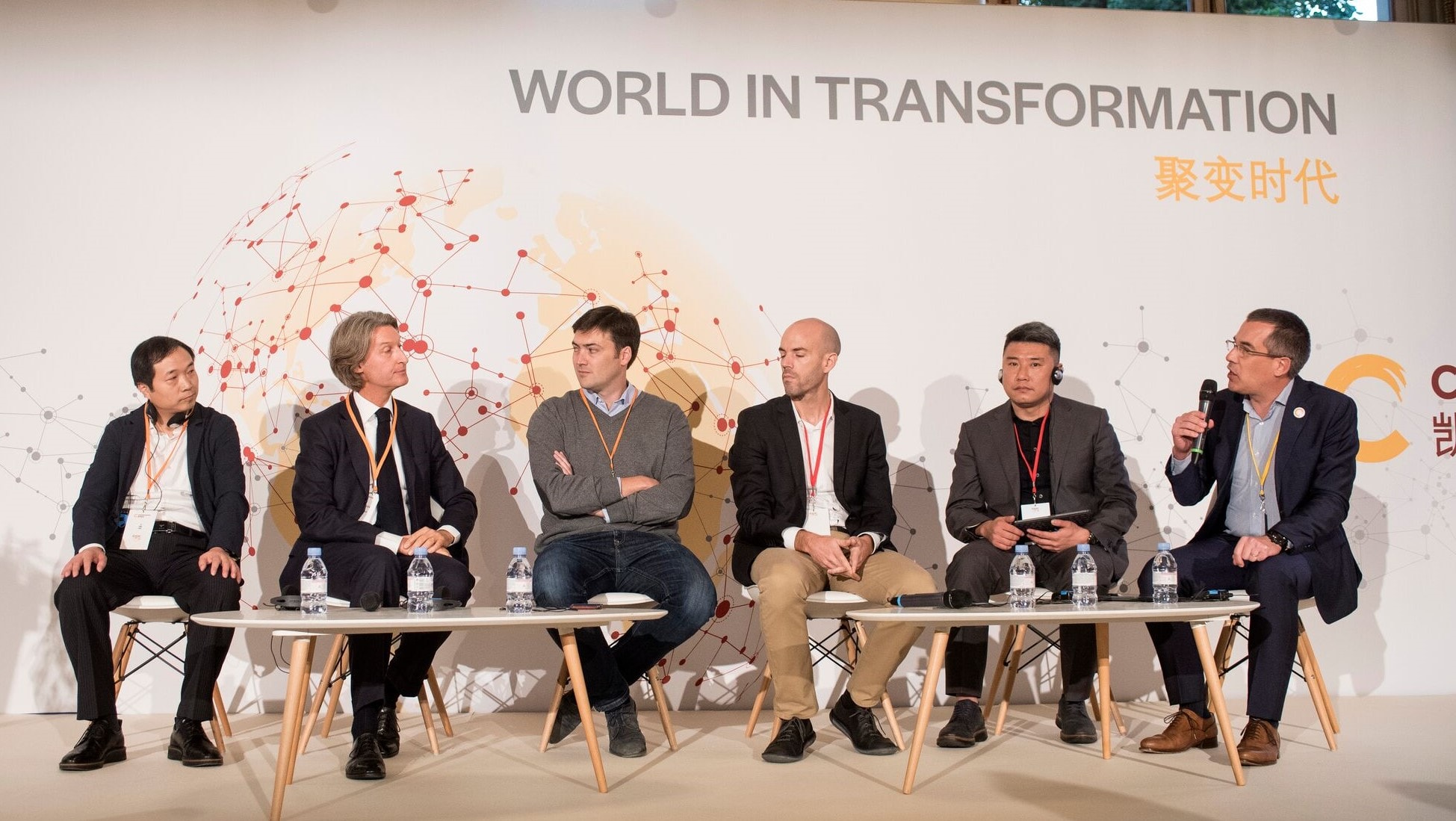
Moderator: Nicolas DU CRAY, Partner of
Cathay Innovation; Jean-Charles DECAUX, Co-CEO of JCDecaux SA; Juan DE ANTONIO, Founder and
CEO of Cabify; Jimmy LOUCHART, CEO of Finalcad; Zhuo SUN, CEO of Yiqi; Eric YI, Manging
Director of CICC Genesis
The digitization of cities and the improvement of the different services
that make a city run is vital. In China for example, an estimated 300 million people will move to
cities between 2010 and 2025, this is a massive challenge in terms of flows which necessitates such
a revolution. Connection and the electrification of urban services are major trends of the smart
city revolution, but to develop fast and in a sustainable way we need to create a unified, open data
platform for a wide range of multimodal, sustainable services. Public and private cooperation is the
way to realize the smart city, but the speed of the transformation is crucial and the time to market
is key.
Round table 4: Revolution in
healthcare
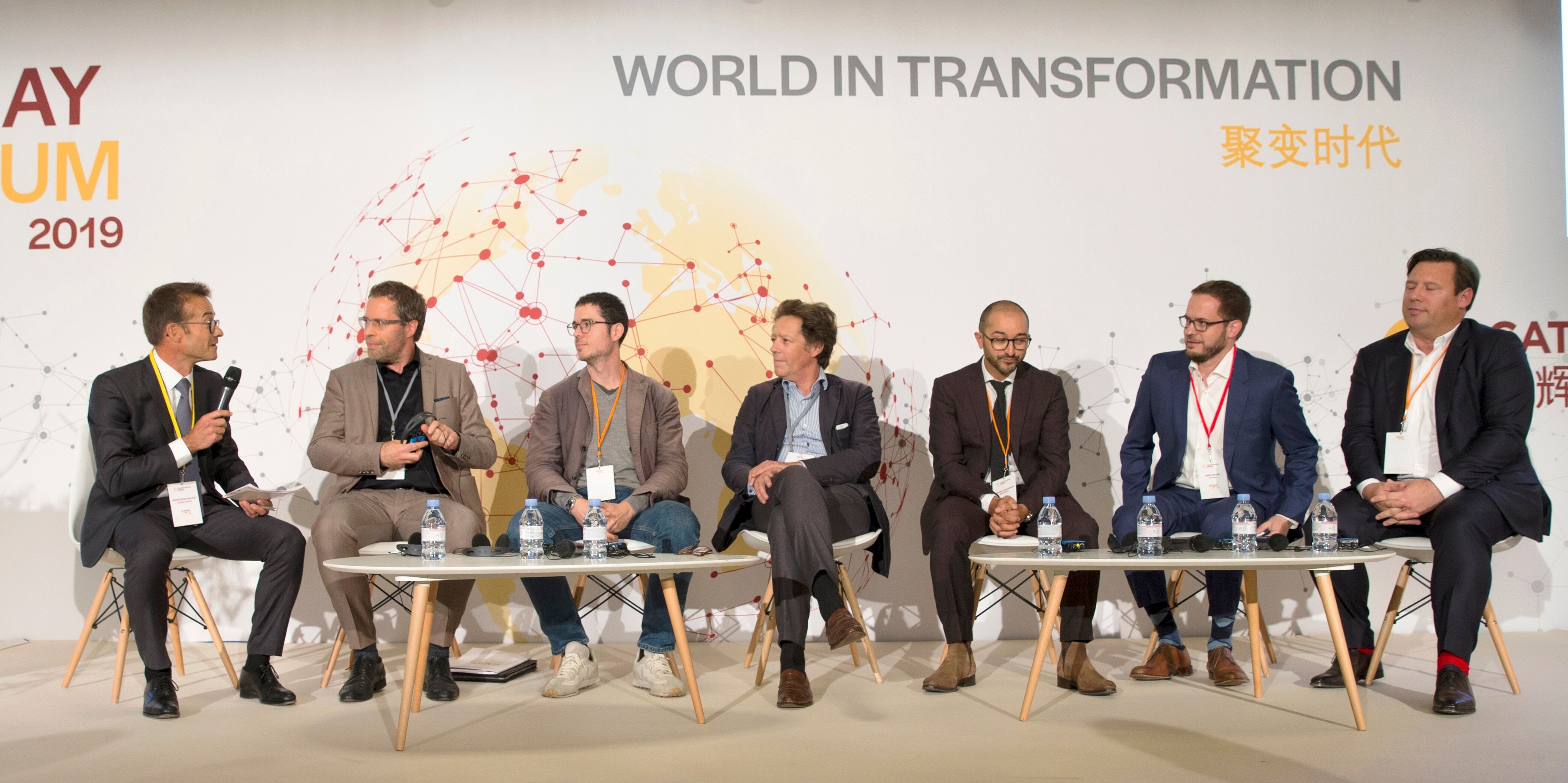
Moderator: Hervé DESCAZEAUX, Managing
Partner of Cathay Capital; Speakers: Niclas ADLER, Co-founder and CEO for Synthesis
Analytics; Amir GOLAN, Chief Commercial Officer of DayTwo; Antoine FLOCHEL, Vice-Chairman
of Ipsen; Frédéric BERTAINA, Founder and CEO of Bioxis Pharmaceuticals; Jean-David
ZEITOUN, Co-founder and Chief Medical Officer of Inato; Jérôme CASAMASSA, Vice-President of
BioMérieux
Healthcare faces an immense underlying trend which will exert huge
pressure on existing models, namely the increasing lifespan of people around the world. The MedTech
revolution will generate productivity gains in healthcare and also give access to high-quality
medical care to more people than ever before, especially once 5G infrastructures are in place. These
efficiency gains will alleviate some of the costs on a micro-level, though developing high tech
tools and longer lifespans will increase costs overall. That’s why the US model, cannot be
replicated in countries like China where the needs are and will be increasingly important. Data has
always been crucial in medicine. Doctors and pharmaceutical firms used to base their recommendations
and operations on their experience and expertise; They will now be able to leverage huge databases
and digital models, and thus to make wiser decisions and develop better and cost-efficient products.
Round table 5: The Fintech
revolution
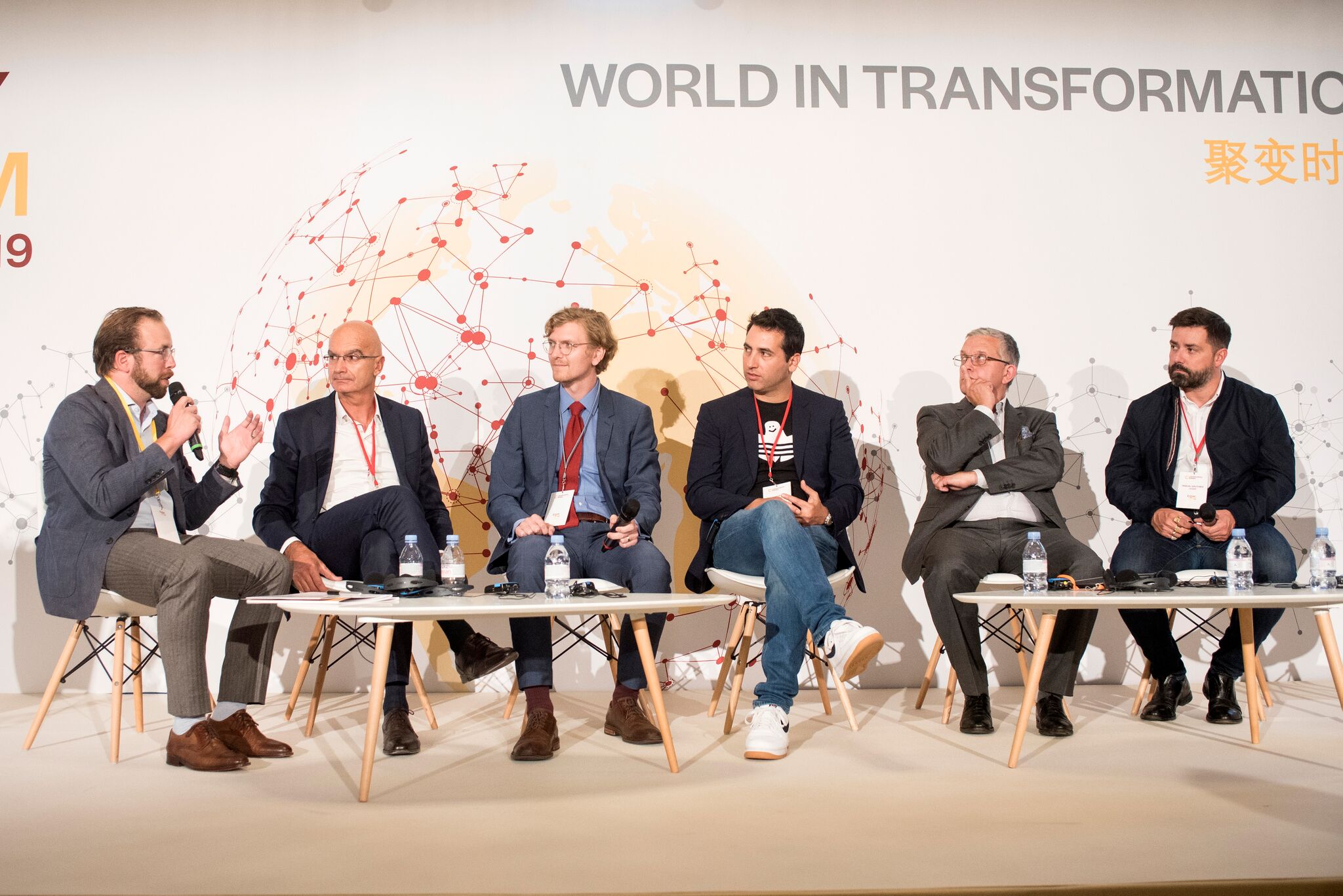
Moderator: Alex LAZAROW, Investment
Director of Cathay Innovation; Speakers: Shachar BIALICK, Founder and CEO of Imagine Curve;
Patrice CHATARD, CEO of Finance Active; Stanislas CHEVALET, Deputy General Director of BNP
Paribas Cardif; Pascal GAUTHIER, CEO of Ledger; Martin CHORZEMPA, Research Fellow of Fintech
in PiiE
Finance is an established industry, representing 20% of the world
economy, and its leading institutions evolved prior to the Internet. Reference players in the sector
have recognized the opportunity to upgrade their methods and in 2018 invested 110 billion dollars in
Fintech. Globalizing a Fintech is an arduous task however. A lot of equity is required on entry and
neither companies nor most customers like to change their habits. Regulatory approaches vary from
one region to the next. Taking the example of online payments, we see that Chinese authorities
adopted a laissez-faire approach in the 2000s until the decision to seriously curtail
cryptocurrencies in 2011, whilst in Europe, regulators choose to accompany the development of a
technology through regulation.
Round table 6: Impact Investing
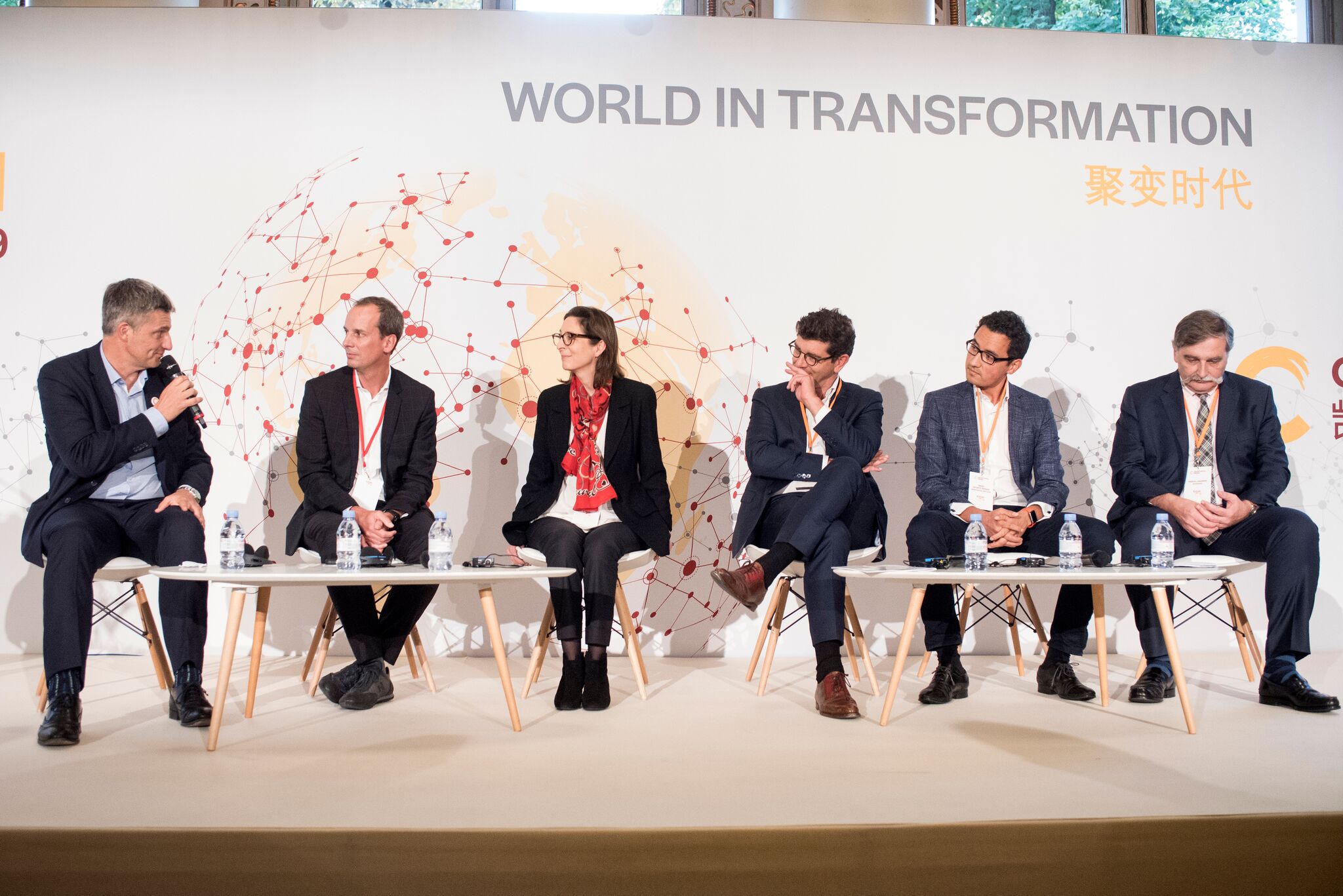
Moderator: Denis BARRIER, CEO and
Co-founder of Cathay Innovation; Speakers: Pascal LAGARDE, Executive Director of
International Direction, Strategy, Studies and Development, Bpifrance; Matthieu VAN DER
ELST, CEO of Michelin Ventures; Fanny PICARD, Owner and Founding Partner
of Alter Equity; Diego-Felipe APONTE VARGAS, Investment Director – CFA of Swen Capital;
Matthieu BACQUIAS, VP Business Development EMEA of KaiOS
ESG is no longer a “nice to have”, it is now a “must have”.
Impact Investing is defined as an investment conducted with the
intention of achieving a positive social or environmental impact. It was formalized by the UN in
2006 with the PRI, the Principles for Responsible Investment. At the time, some investors thought
that ESG would necessarily be less profitable. But today most Private Equity firms believe in the
impact of ESG as illustrated by the requirements of clear ESG KPIs throughout their ecosystems. One
often talks about digital disruption but there is now a real ESG disruption with new business models
emerging, where old practices are challenged. Cathay is proud to have among its portfolio companies
KaiOS, which fostered one of the world’s most impactful projects according to Forbes. In partnership
with the Indian Telco company Jio, KaiOS powered the JioPhone which in less than 2 years has
connected to the internet over 100 million new users.
Round table 7: Diversity and
inclusion in PE/VC
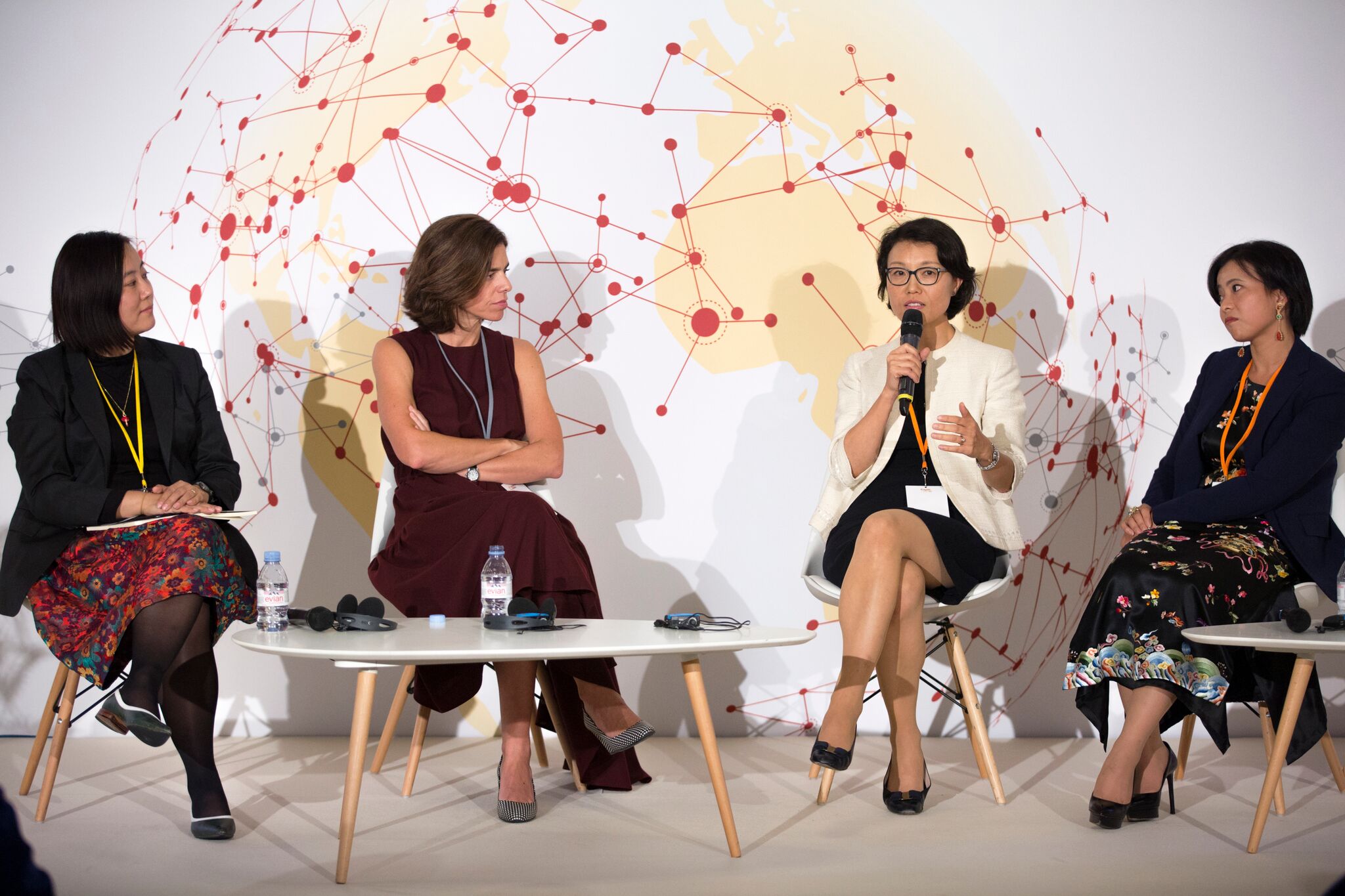
Moderator: Anne WANG, Partner of
Cathay Capital; Di WU, Partner of Suzhou Fund; Beatriz GONZALEZ, Founder and Managing
Partner at Seaya Ventures; Xin MA, Managing Director, Asia Platform of Total Energy
Ventures
We could barely even mention female leadership a few decades ago and now
this notion is being more widely accepted, both in business and politically. The exclusion of gender
in certain professional fields is narrowing down. Numerous CAC 40 companies even have policies of
recruitment to better balance the workforce by gender and origin. But have we overdone it? We cannot
fulfill certain criteria just for the sake of ticking the To Do list. Therefore, a wiser and deeply
think-through management policy is required.
Round table 8: Evolution of
consumer behavior in the digital age
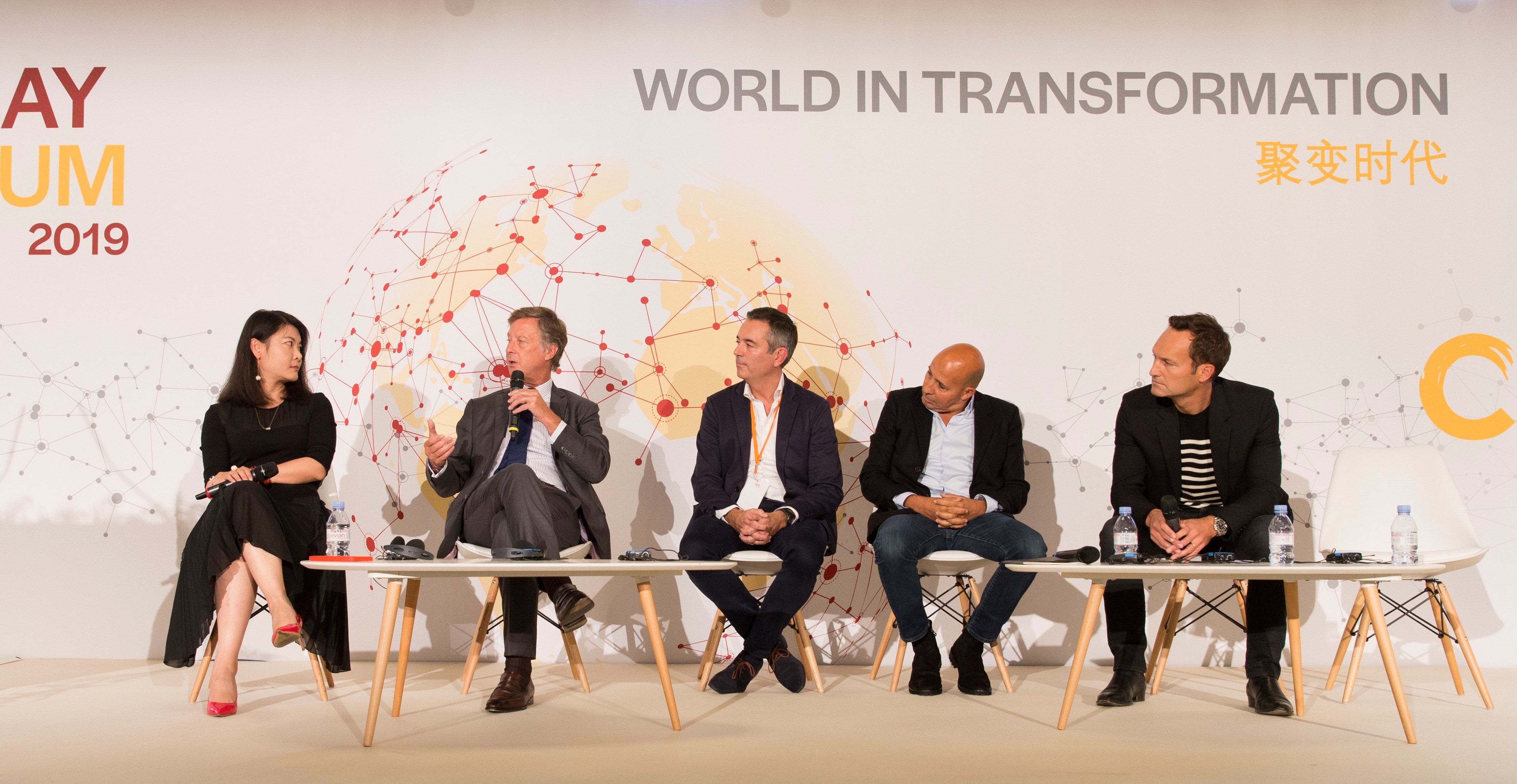
Moderator: Lanchun DUAN, Managing
Partner of Cathay Capital; Sébastien BAZIN, Chairman and CEO of Group Accor; Grégory BOUTTE,
Chief Client & Digital Officer of Group Kering; Dan ARROUAS, Co-founder & CEO of
ba&sh; Stéphane LONGUET, Managing Partner of Convivialité Ventures Pernod
Ricard
Consumer behaviors have tremendously changed in the internet era. In
both tourism, and fashion & retail industries, customers are over-informed, they don’t come to
the store by chance anymore. The act of buying is motivated, it means that the client accepts and
understands the brand. Digital is there to drive traffic in stores, campaigns are now conceived
around that principle. Digital tools and online communities are also increasingly important for most
of the brands. Online communities are unique territories to promote brand cultures, to interact
directly with customers and to create emotional connections. In Luxury as well, young people and
Chinese clients are the new consumers targeted by leading brands and as those targets are both super
connected digitally, on-line marketing is key.